Second of two parts
By Paul A. Tenkotte
Special to NKyTribune
In last week’s column, we learned how racism in Kentucky, Indiana, and Ohio made the passage of the 15th Amendment—granting the right to vote to all males regardless of “race, color, or previous condition of servitude”—an uphill battle.
Although the legislatures of these three states eventually approved the amendment, lively debate raged between Republicans and Democrats, and between newspapers like the Cincinnati Commercial Tribune and the Louisville Courier-Journal.
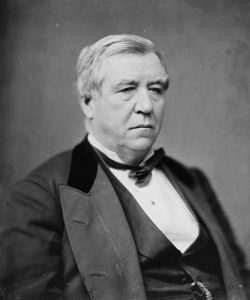
John White Stevenson (1812-1886) was governor of Kentucky during this time.
Born in Richmond, Virginia in 1812, Stevenson held undergraduate and law degrees from the University of Virginia in Charlottesville. In 1841, he moved to Covington, Kentucky, where he became a successful lawyer and politician.
A member of the Democratic party, Stevenson climbed the political ranks. He served in the U.S House of Representatives from 1857 until 1861. In 1867, he was elected lieutenant governor of Kentucky under Governor John Helm. Helm died five days into his term, so Stevenson assumed the governorship.
Governor Stevenson sent the Fifteenth Amendment to the Kentucky General Assembly in March 1869, with the recommendation that they reject it. Speaking before the General Assembly on March 10th, Stevenson argued that the 15th Amendment would “annihilate the State governments. It takes from them powers expressly vested and reserved; and, by abrogating the partition of power between the Federal and State governments, whose mutual action and reaction were looked to by our fathers as checks to prevent either from encroaching on and absorbing the powers of the other, and as limitations to keep each within their proper sphere, utterly destroys the equilibrium of the entire system. . . . No one can deny that the ratification of the proposed amendment is a total revolution in the character of our governmental system” (Cincinnati Commercial Tribune, 13 March 1869, p. 6).
In the Kentucky House, the amendment was first taken up by the Committee on Federal Relations, chaired by Jesse D. Bright of Northern Kentucky. Bright, a Democrat, was a former slave owner himself, and was expelled from the United States Senate in 1862 for suspicions of disloyalty. Bright and his committee recommended rejection of the Fifteenth Amendment (“The State Capital,” Louisville Courier-Journal, March 12, 1869, p. 3).
On March 11, 1869, the Kentucky House voted against the Fifteenth Amendment, 80 to 5. Sadly, no Northern Kentucky representative voted in favor of black suffrage. Jesse Bright reported the House’s resolutions against the amendment to the Kentucky Senate.
There, John G. Carlisle (1834-1910) of Covington, a Democrat and protégé of John W. Stevenson, moved that the amendment be referred to the Senate Committee on Federal Relations, and that they report back to the entire Senate the following morning by 11 a.m.
The following day, the Kentucky Senate’s Committee on Foreign Relations likewise issued a majority report opposing passage of the Fifteenth Amendment.
One lone member, H. C. Lilly, issued a minority report. Lilly eloquently defended the rights of African Americans, proclaiming that the Bill of Rights referred to the life, liberty and property of all men, in opposition to the “dominant party in Kentucky” (the Democratic), who interpreted it “to include only white persons.”
Denying “two hundred and fifty thousand, or one-fifth of the population” of Kentucky the right to vote, Lilly argued, would adversely affect Kentucky’s representation in the United States Congress when the next decennial census would possibly result in the reapportionment of less U.S. House seats to Kentucky.
Further, Lilly asserted “that the colored citizens will never be allowed to enjoy their civil rights so long as the right to vote is denied them.”
Fairness and justice to the African-American community, “who are now required to pay taxes and render military service, and bear all civil burdens as other citizens,” demanded equal suffrage. Lilly realized that passage of the Fifteenth Amendment in that legislative session was impossible, so he urged that the vote be delayed until the General Assembly met again in 1870 (“The Fifteenth Amendment,” Louisville Courier-Journal, March 16, 1869, p. 3).
Despite the powerful and logical arguments that Senator Lilly offered his colleagues, the Kentucky Senate rejected the Fifteenth Amendment in a vote of 27 to 6.
Kentucky, a border state during the Civil War, had emerged after the war confused and frustrated. The Union had been maintained, as many Kentuckians had hoped and fought for. What they could not yet accept, however, was equal rights for blacks.
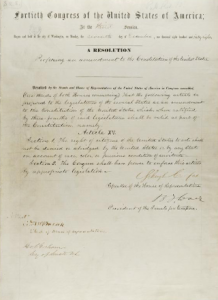
Meanwhile, in his March 1869 Inaugural Address, President Ulysses S. Grant of Ohio endorsed state ratification of the Fifteenth Amendment. A hero of the Union Army, Grant was a loyal member of the Republican party.
The Louisville Courier-Journal, a Democratic party voice, was appalled by what they regarded as the inappropriateness of President Grant’s recommendation, which they viewed as “neither more nor less than a direct appeal to the State Legislatures to ratify it. He thus intermeddled, in his very first public document as President, with what didn’t belong to him.
He wandered wide from the plain path of official duty. He sought to wield power in a direction in which he had no right to wield it” (“Going Out of the Way,” Louisville Courier-Journal, March 18, 1869, p. 3).
In Indiana, meanwhile, the Fifteenth Amendment produced a firestorm of massive proportions. Democratic members of the state legislature resigned to prevent a quorum on its vote. In March 1869, a special election was held in Indiana. All of the Democrats except one senator were reelected (“The Election in Indiana—Democratic Victory,” Louisville Courier-Journal, March 25, 1869, p. 2).
The process repeated itself in Indiana in May 1869 when many of the Democratic legislators resigned, but on May 14, the remaining members —while not constituting a quorum—passed the Fifteenth Amendment.
By December 1869, twenty-one states (of the twenty-eight necessary for passage) had ratified the Fifteenth Amendment. The following month, on January 20, 1870, the Ohio House very narrowly approved the Fifteenth Amendment by a vote of 57 to 55.
But all was not completely well. New York, which had initially ratified the Fifteenth Amendment, later repealed it, amidst doubts of the legality of doing so. And by February 1870, nine states had rejected the amendment, according to the Courier-Journal: California; Delaware; Indiana; Kentucky; Maryland; New Jersey; New York; Oregon; and Tennessee) (“The Fifteenth Amendment,” Louisville Courier-Journal, February 23, 1870, p. 2).
Nevertheless, by the winter of 1870, the handwriting was on the wall.The Fifteenth Amendment would be ratified in due time.
The editors of the Louisville Courier-Journal resigned themselves to that fact, and additionally tried to convince themselves that the “Democratic party of Kentucky does not need the negro vote.”
In an editorial with the racist title of “A Short Epistle to Sambo,” the Courier-Journal alleged that the Republican party was merely courting the black vote for their own selfish purposes. “Thus,” the editors stated, African Americans “are drawn between the two fires of deeply-rooted distrust and designing demagogism.
They should beware of both. It is not for them to quarrel with the prejudice that condemns in advance nor to be deluded by the flattery of those who have a thrifty reason for their promises of reward” (“A Short Epistle to Sambo,” Louisville Courier-Journal, February 17, 1870, p. 2).
On March 30, 1870, President Grant sent a message to Congress declaring that the Fifteenth Amendment had been ratified by the requisite three-fourths majority of states.
The Democrats in the United States Congress questioned the number, arguing that New York had repealed its original approval, and that Indiana’s passage was undertaken without a quorum. Nonetheless, the Fifteenth amendment stood, because Nebraska and Texas (making thirty states) had just ratified the amendment.
The seven states that had rejected the Fifteenth Amendment (the nine listed prior in this article minus New York and Indiana) slowly ratified the amendment after it took effect. Kentucky’s passage finally occurred on March 18, 1976, 106 years following the declaration of the Fifteenth Amendment nationwide.
Ironically, the Louisville Courier-Journal had correctly predicted the outcome of eventual passage of the Fifteenth Amendment. In one of the strongest phrases of its day, its editors forecast that “The fifteenth amendment is the Kansas-Nebraska folly of the Republican party.
Its consequences seem to us inevitable” (“The Kentucky Democracy,” Louisville Courier-Journal, April 13, 1869, p. 2). In a later article, the editors expounded upon their statement about the 1854 Kansas-Nebraska Act, which had repealed Kentuckian Henry Clay’s Missouri Compromise:
“The Democratic party, to take a ready example, made a great mistake in what it expected of the repeal of the Missouri Compromise. . . . But the result did not answer the anticipation; and in the end it turned out that the repeal of the Missouri Compromise had strengthened the enemies of slavery instead of enlarging the area of what was called the slave power. Both Kansas and Nebraska grew into ultra Republican States.”
Likewise, the editors of the Courier-Journal argued that the Fifteenth Amendment would backfire. “Every one of the Southern States reconstructed under the Fifteenth amendment will fall into the hands of the Democratic party,” the Courier-Journal predicted (The Fifteenth Amendment,” Louisville Courier-Journal, January 26, 1870, p. 2).
Although such a statement seems extreme to us today, in 1870 it was not.
The Civil War was over, 600,000 to 700,000 people were dead, and yet polarization of the nation was still increasing. In the late nineteenth century, the South would become a solid voting bloc for the Democratic party, as the Courier-Journal had predicted.
And Southern legislatures would pass laws circumventing the Fifteenth Amendment, disenfranchising blacks and poor whites from voting based upon literacy tests and poll taxes. In addition, violence and electoral fraud added to the combustible mix, enflaming the South in a culture that embraced prejudice and segregation for the next century.
We want to learn more about the history of your business, church, school, or organization in our region (Cincinnati and Northern Kentucky). If you would like to share your rich history with others, please contact the editor of “Our Rich History,” Paul A. Tenkotte, at tenkottep@nku.edu. Paul A. Tenkotte, PhD is Professor of History at Northern Kentucky University (NKU) and the author of many books and articles.








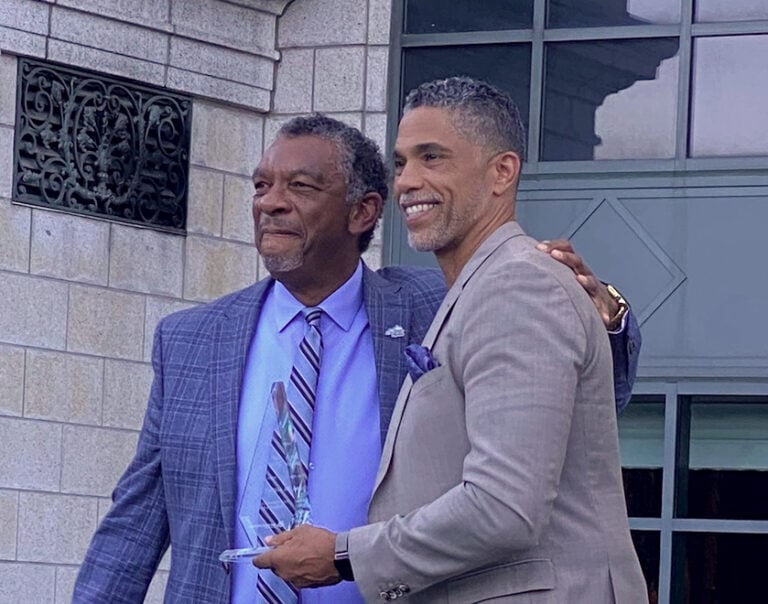
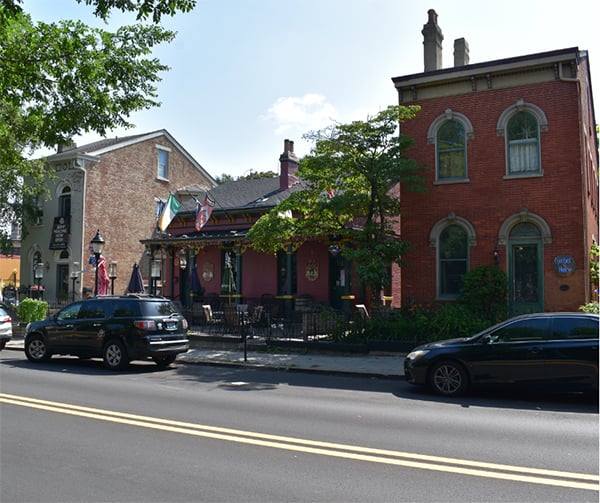


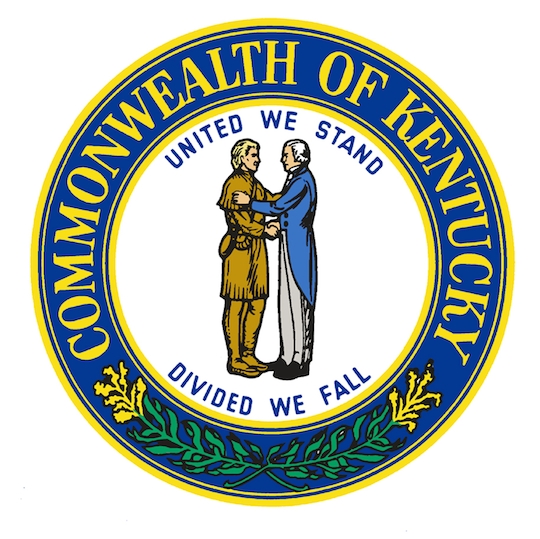




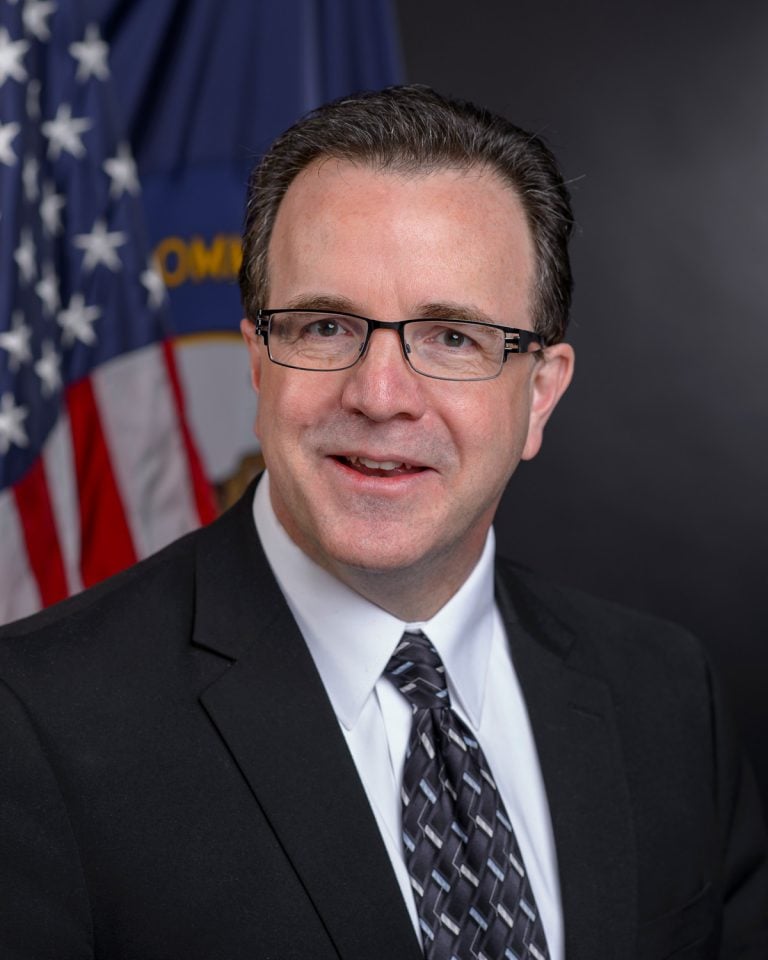
What does the title “the role of John Sherman” have to do with the article written by Mr Tenkotte?